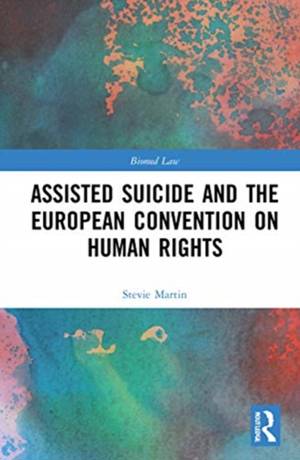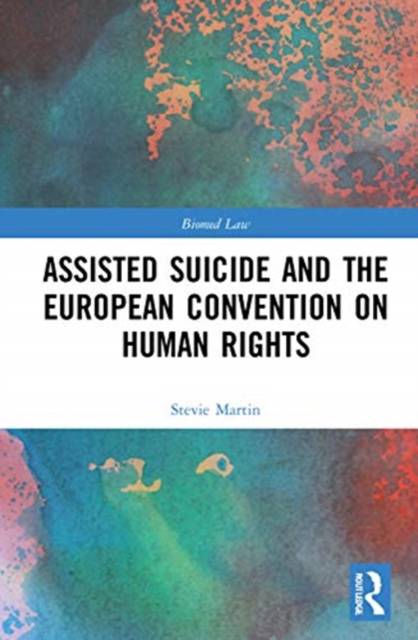
- Afhalen na 1 uur in een winkel met voorraad
- Gratis thuislevering in België vanaf € 30
- Ruim aanbod met 7 miljoen producten
- Afhalen na 1 uur in een winkel met voorraad
- Gratis thuislevering in België vanaf € 30
- Ruim aanbod met 7 miljoen producten
Assisted Suicide and the European Convention on Human Rights
Stevie MartinOmschrijving
Locating assisted suicide within the broader medical end-of-life context and drawing on the empirical data available from the increasing number of permissive jurisdictions, this book provides a novel examination of the human rights implications of the prohibition on assisted suicide in England and Wales and beyond. Assisted suicide is a contentious topic and one which has been the subject of judicial and academic debate internationally. The central objective of the book is to approach the question of the ban's compatibility with the European Convention on Human Rights afresh; freed from the constraints of the existing case law and its erroneous approach to the legal issues and selective reliance on empirical data. The book also examines the compatibility of the ban on assisted suicide with rights which have either been erroneously disregarded or not considered by either the domestic courts or the European Court of Human Rights. Having regard to human rights jurisprudence more broadly, including in the context of abortion, the research and analysis undertaken here demonstrates that the ban on assisted suicide violates the rights of a significant number of individuals to life, to freedom from torture or inhuman or degrading treatment and to private life. Such analysis does not depend on a strained or contrived approach to the rights at issue. Rather, the conclusions flow naturally from a coherent, logical application of the established principles governing those rights.
While the focus of the book is the Suicide Act 1961, the conclusions reached have implications beyond England and Wales, including for the other devolved jurisdictions and international jurisdictions. Beyond courts and legislators, it will be a valuable resource for students of human rights and medical law, as well as medical and legal practitioners and academics working in human rights and end-of-life care.
Specificaties
Betrokkenen
- Auteur(s):
- Uitgeverij:
Inhoud
- Aantal bladzijden:
- 220
- Taal:
- Engels
- Reeks:
Eigenschappen
- Productcode (EAN):
- 9780367628222
- Verschijningsdatum:
- 13/04/2021
- Uitvoering:
- Hardcover
- Formaat:
- Genaaid
- Afmetingen:
- 155 mm x 236 mm
- Gewicht:
- 453 g

Alleen bij Standaard Boekhandel
Beoordelingen
We publiceren alleen reviews die voldoen aan de voorwaarden voor reviews. Bekijk onze voorwaarden voor reviews.











